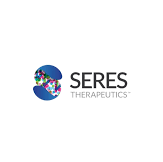Article
SER-109 Results in Increase in Microbe-Producing Metabolites
Author(s):
The live microbiota therapeutic has shown promise in treating patients with recurrent CDI.

New data on SER-109 presented during 2022 Digestive Disease Week Annual Meeting in San Diego shows the live microbiota therapeutic results in restoring microbe-associated metabolites known to prevent recurrent Clostridioides difficile infections (CDI).
A team, led by Kevin D. Litcofsky, MD, Seres Therapeutics, investigators changes in short, medium, and branched-chain fatty acids based on emerging studies regarding the potential role of microbe-associated metabolites in inhibiting C difficile growth and restoring gut homeostasis.
SER-109
Recent studies, including a phase 3 trial, have shown that SER-109, an oral investigational microbiome therapeutic made of purified Firmicutes spores, shown promise compared to placebo in reducing the risk of recurrent CDI at week 8.
In the phase 3 trial, the primary endpoint of reducing the risk was superior for patients treated SER-109 compared to placebo (12.4% vs. 39.8%, respectively; RR, 0.32; 95% CI, 0.18-0.58; P <0.001).
SER-109 also led to a higher engraftment of dose species and rapid conversion of primary to secondary bile acids, known inhibitors of C difficile spore germination and vegetative growth at weeks 1, 2, and 8.
The Study
In the study, the investigators examined patients with a history of at least 3 episodes of rCDI. Each patient was randomly assigned to be treated with either placebo or SER-109 following 10-21 days of standard of care antibiotic treatment.
The investigators also looked at a post-hoc analysis in which concentrations of short (acetate, propionate, butyrate), medium (valerate, hexanoate), and branched-chain (2-methylbutyrate, isobutyrate, isovalerate) fatty acids in subjects’ stool samples were measured from baseline to 1, 2, and 8 weeks post-treatment. The measurements were made by targeted liquid chromatography with tandem mass spectrometry.
The team also used two-sided Mann-Whitney U tests to determine statistical significance for metabolite comparisons between the different arms of the trial.
The baseline concentrations of all measured fatty acids were comparable between participants treated with SER-109 and placebo.
Fatty Acids
The concentrations of butyrate, a short-chain fatty acid, and valerate and hexanoate, medium-chain fatty acids, rapidly and significantly increased in patients treated with SER-109 compared to placebo.
The concentrations of microbe-produced metabolites also remained significantly higher in patients treated with SER-109 at week 2 and week 8 compared to placebo. The changes correlated with a greater magnitude of engraftment of SER-109 dose species through week 8 compared to placebo. However, other short and branched-chain fatty acids did not show consistent treatment related differences across the different time points.
The results show SER-109 could modulate multiple pathways critical to the rapid interruption of the C difficile life cycle.
“Compared to placebo, SER-109 demonstrated a rapid and sustained increase in the concentrations of butyrate, valerate, and hexanoate in parallel with SER-109 engraftment at weeks 1, 2 and 8 in subjects with a history of rCDI,” the authors wrote. “The increase in these microbe-produced metabolites was associated with a reduction in rCDI events suggesting that increasing fatty acid production may improve clinical outcomes.”
The study, “IMPACT OF SER-109, AN INVESTIGATIONAL MICROBIOME THERAPEUTIC, ON STOOL FATTY ACID METABOLITES IN A PHASE 3 RANDOMIZED TRIAL (ECOSPOR III) FOR TREATMENT OF RECURRENT CLOSTRIDIOIDES DIFFICILE INFECTION (CDI),” was published online by DDW 2022.



